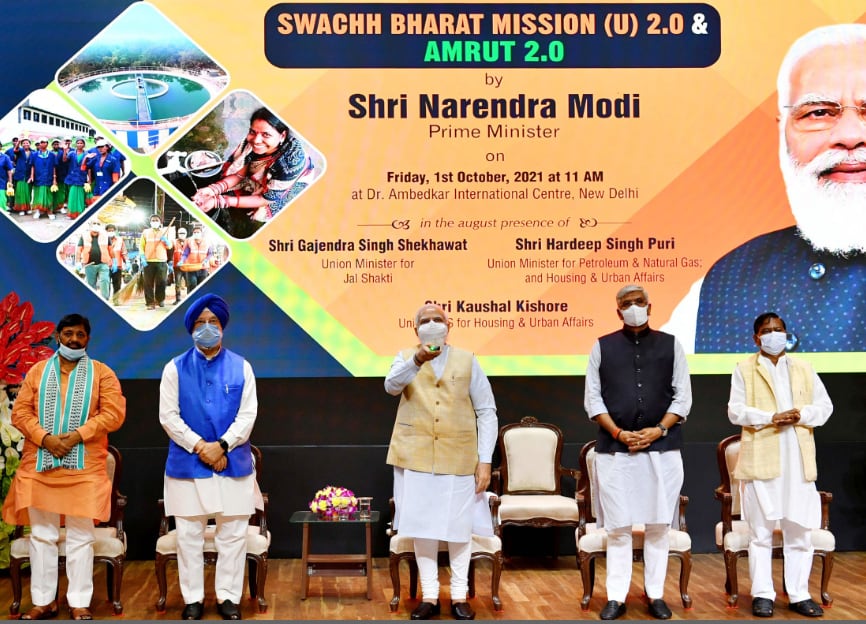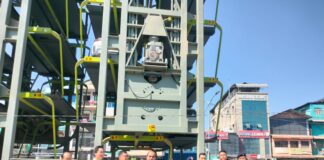New Delhi: Prime Minister Narendra Modi on Friday launched the second phase of Swachh Bharat Mission-Urban and Atal Mission for Rejuvenation and Urban Transformation (AMRUT) with a new goal of making cities garbage free.
While the first phase focused on making cities Open Defecation Free, the focus now will be on solid waste management, a mammoth problem for India.
According to a 2018 World Bank report, India generates 277.1 million tonnes of solid waste annually.
Speaking on the occasion, the Prime Minister said “In 2014, the countrymen took a pledge to make India open defecation free and the pledge was fulfilled through the construction of more than 10 crore toilets”.
“Now the goal of ‘Swachh Bharat Mission-Urban 2.0’ is to make the cities Garbage-Free, completely free of garbage,” he said.
The Prime Minister underlined the scope of the country’s target in the next phase of Mission AMRUT as ‘Improving sewage and septic management, making our citie’s water safe and ensuring that no sewage drains anywhere in our rivers’.
He dedicated the successes of transformation in urban regeneration and cleanliness to Mahatma Gandhi.
“In this, there is a mission, there is respect, there is dignity, there is also the ambition of a country and there is also unmatched love for the motherland,” he said.
Noting that the event was taking place at the Ambedkar International Centre, Modi remarked that Babasaheb believed in urban development as a great means of removing inequality.
He talked about migrant workers having a poor standard of living in cities compared to their lives in the villages, and added that Ambedkar’s emphasis was on changing this situation by removing this inequality.
“The next phase of Swachh Bharat Mission and Mission Amrit is an important step towards fulfilling the dreams of Babasaheb,” said the Prime Minister.
“We have to remember that cleanliness is not a task just for a day, a fortnight, a year or for just a few people. Cleanliness is a great campaign for everyone, every day, every fortnight, every year, generation after generation. Cleanliness is a lifestyle, cleanliness is a life mantra,” he said.
The Prime Minister also said when the Swachh Bharat Campaign started in 2014, less than 20 per cent of the waste generated every day in the country was processed.
“Today we are processing about 70 per cent of daily waste. Now we have to take it to 100 per cent,” he said.
The Swachh Bharat Mission-Urban 2.0 envisions to make all cities ‘Garbage Free’ and ensure grey and black water management in all cities other than those covered under AMRUT.
AMRUT 2.0 aims to provide 100 per cent coverage of water supply to all households in around 4,700 urban local bodies by providing about 2.68 crore tap connections. It also envisions 100 per cent coverage of sewerage and septage in 500 AMRUT cities by providing around 2.64 crore sewer and septage connections, which will benefit more than 10.5 crore people in urban areas.


